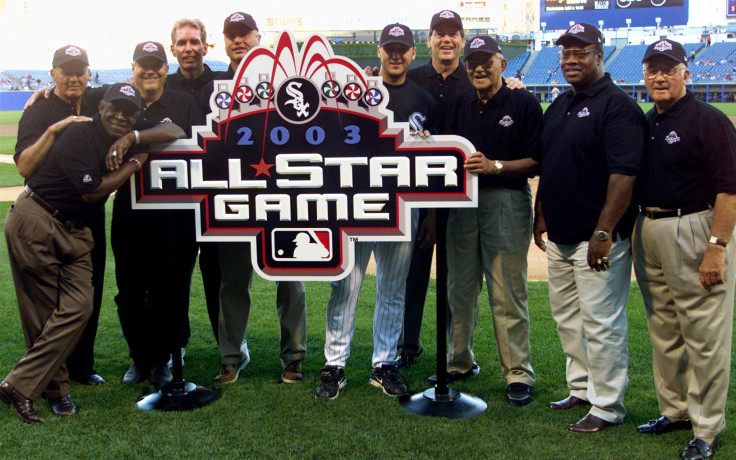Minnie Minoso: Obama Commemorates Death Of 'Mr. White Sox' In Statement

President Barack Obama, a noted Chicago White Sox fan, released a statement Sunday commemorating the death of the team’s first black player and the first black Major League Baseball player in Chicago, Minnie Minoso. Minoso, also known as “the Cuban Comet” and “Mr. White Sox,” was also the first black MLB player from Latin America, according to the New York Times.
Minoso died Sunday in Chicago, the White Sox announced. The Times reported his true age was never clear, but by an account in his autobiography, he would have been 89 years old when he died as a result of what his son, Charlie Rice-Minoso, told the Chicago Tribune was a heart ailment.
After joining MLB at the end of the 1940s, Minoso was often subjected to discrimination. He made his Major League debut with the Cleveland Indians in 1949 and was traded to the White Sox in 1951.
“[A]s he helped to integrate baseball in the 1950s, he was a target of racial slurs from fans and opponents, sometimes forced to stay in different motels from his teammates,” Obama said in the statement. “But his speed, his power -- and his resilient optimism -- earned him multiple All-Star appearances and Gold Gloves in left field, and he became one of the most dominant and dynamic players of the 1950s. ”
In addition to his lifetime .298 batting average, 186 home runs and 1,023 RBI, according to Pro-Baseball-Reference.com, Minoso won three Gold Gloves and was selected to seven MLB All-Star Games. The Cuban slugger also played in a game in the 1940s, ‘50s, ‘60s, ‘70s and ‘80s.
Read the full text of Obama’s statement below.
For South Siders and Sox fans all across the country, including me, Minnie Minoso is and will always be “Mr. White Sox.”
The first black Major Leaguer in Chicago, Minnie came to the United States from Cuba even though he could have made more money elsewhere. He came up through the Negro Leagues, and didn’t speak much English at first. And as he helped to integrate baseball in the 1950s, he was a target of racial slurs from fans and opponents, sometimes forced to stay in different motels from his teammates. But his speed, his power -- and his resilient optimism -- earned him multiple All-Star appearances and Gold Gloves in left field, and he became one of the most dominant and dynamic players of the 1950s.
Minnie may have been passed over by the Baseball Hall of Fame during his lifetime, but for me and for generations of black and Latino young people, Minnie’s quintessentially American story embodies far more than a plaque ever could.
Michelle and I send our thoughts and prayers to his family and fans in Chicago, Cleveland, and around the world.
© Copyright IBTimes 2024. All rights reserved.












